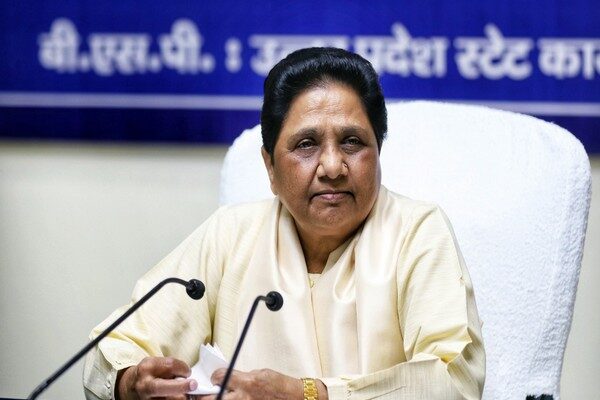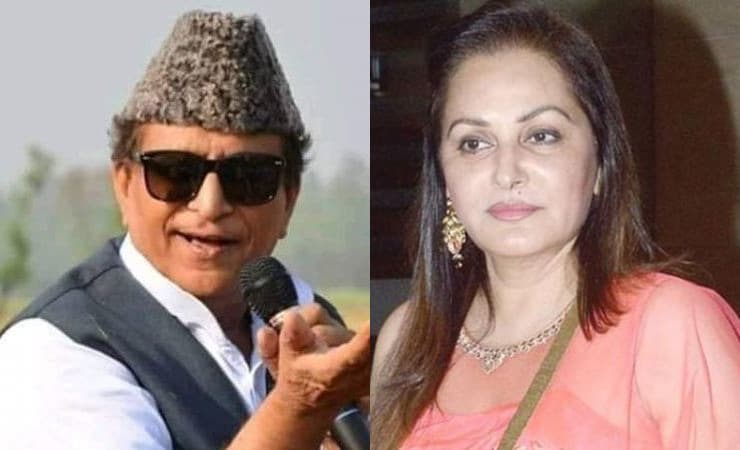Most political parties have
no system in place that will restrain their leaders from using coarse and sexist
language to deride female opponentsThe ongoing campaign
for India’s Lok Sabha polls is plumbing new depths on a daily basis. As
electioneering gathers momentum, reports of politicians using coarse and
abusive language against their opponents have become a regular occurrence.
Though male
politicians, especially high-profile leaders like Congress president Rahul
Gandhi, are constantly targeted by rivals, it is the women politicians who are
the worst off. Civility in public life is now a rare phenomenon as women
politicians are finding out to their own peril, having to continuously contend
with the worst possible sexist and misogynistic comments. From being called
“prostitutes”, “skirt wali bai”
and “nach gaane wali” to comments on
their physical appearance and how they dress, women in politics have to face
all this and more.
The offenders come
from across the political spectrum and the insulting language used by them has
become such a regular feature that both their party bosses and the public at
large view it as acceptable behavior, putting it down to election fever. The
common excuse proffered for this behavior is that “people sometimes get carried
away in the heat of the moment.” If at all there is any outrage and anger, it
is confined largely to the social media.
Samajwadi Party leader
Azam Khan, who is not new to controversies, touched a new low recently while
campaigning against Jaya Prada, a former film actor who has been fielded by the
Bharatiya Janata Party from the Rampur Lok Sabha constituency. Addressing a public
meeting, Khan remarked, “It took you 17 years to understand her true face. But
I realised in 17 days… that she wears khaki underwear.” And, of course,
an unrepentant Khan shrugged off these comments, merely saying these were not
meant for Jaya Prada. Similarly, another Samajwadi Party leader Firoz Khan
had not held back in degrading Jaya Prada. “Rampur ki shaamein rangeen ho jaayengi ab jab chunavi mahual chalega (Rampur’s
evenings will turn colourful in this election season),” he had said at an
election rally, clearly referring to her former career in films.
While Jaya Prada has
always been at the receiving end, primarily because she comes from the world of
cinema, other women politicians are not spared either. Priyanka Gandhi Vadra,
the newly-appointed Congress general secretary, is currently the prime target
of her political rivals. From comments about her clothes to her looks, nothing
is off-limits.
The gamut of comments
ranges from being called a “choclatey face”, “Sarupnakha” (Ravan’s sister)
and “Pappu ki Pappi”. BJP’s Bihar minister Vinod Narayan Jha had derisively
remarked that Priyanka Gandhi Vadra may be beautiful but has no political
achievement to her credit. His party colleague Harish Dwivedi did no better. He
chose to comment on Priyanka’s clothes, stating at another election rally that
“Priyanka Gandhi wears jeans and top in Delhi but wears a sari and sindoor when
she tours rural areas. Senior BJP leader Kailash Vijavargiya went a step
further when he remarked that Priyanka’s entry into politics was similar to
fielding Kareena Kapoor or Salman Khan in elections. “The Congress does not
have strong candidates, so it is bringing in these charming faces,” he sneered.
Bahujan Samaj Party
leader Mayawati is another “favorite” with the abusers. As a woman, the BSP
chief has many “disadvantages” to her credit: She is heading a party, has been
a chief minister, nurses Prime Ministerial ambitions but above all, she is a
Dalit. A scheduled caste woman leader, who had the temerity to upset the social
status quo, is anathema to male politicians, especially those belonging to the
upper castes. As a result, her adversaries consistently demean and disparage
her.
When Mayawati recently
mocked Prime Minister Narendra Modi for calling himself a chowkidar while
living in royal style, BJP leader Surendra Singh responded by
stating that the BSP chief coloured her hair and gets a daily facial to
“hide her age.” And when the BSP teamed up with the Samajwadi Party, another
BJP leader did not blink before calling her a “transgender”. Three years ago,
another BJP leader from Uttar Pradesh had accused Mayawati of selling tickets
like a “prostitute,” a remark which was defended by his wife Swati Singh.
But BJP leaders are
not the only offenders here. Misogyny cuts across political barriers. Sanjay
Nirupam, former president of the Mumbai Regional Congress Committee, had, in
the course of a television debate, jeered Union Smriti Irani, calling her “thumke lagane wali”. Congress
alliance partner Jaydeep Kawade, fared no better, stating that Irani wears a
bindi and “that the size of a woman’s bindi keeps grows as she changes
husbands.”
As charges and
counter-charges fly thick and fast, it appears that there is going to be no
early end to this coarsening debate. It is little wonder that women hesitate to
enter politics as political parties have no systems in place to check such
behaviour. On the other hand, the conduct of offending politicians is
invariably shrugged off without inviting any form of punishment from their
party bosses.
This comes at a time
when political parties, in an effort to appear more gender-friendly and to get
a slice of the women’s vote, have publicly declared that they would give more
tickets to women and even implement a quota for women in party structures.
However, their commitment can easily be gauged by the fact that the women’s
reservation bill, providing quotas for women in Parliament and state
assemblies, has been pending for nearly two decades while the pledge to give
more representation in the party organisation and the selection of candidates
invariably remains unfulfilled.
]]>

